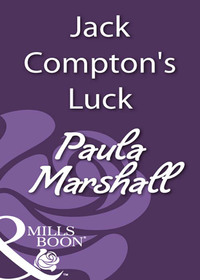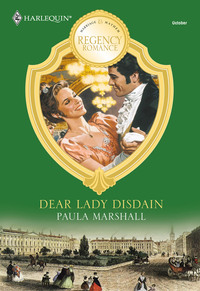
Полная версия
An Unconventional Heiress
‘Ah, Miss Langley,’ said Macquarie with his easy smile. ‘I would like you to meet Dr Kerr. He is not only my personal physician, but my friend, and one who has the colony’s health at heart.’
‘Thank you,’ responded Sarah glacially, ‘but we have already met.’ Her manner did not suggest that the meeting had been a happy one.
‘Indeed,’ replied Dr Kerr, equally coldly, ‘Miss Langley and I have already exchanged opinions on the manners and morals of colonial life.’
‘Yes,’ said Sarah. The devil inside her that had made her respond to Major Menzies’s warning about Tom Dilhorne by secretly determining to meet and speak with him again was compelling her to be as overtly rude to this particular colonial savage as she dare. ‘Doctor Kerr has given me an extremely accurate picture of the level of civility that I may expect to find here. I cannot but thank him for it.’
‘On the contrary,’ Alan Kerr replied instantly, looking more like an offended eagle than ever, ‘it is I who should thank you, Miss Langley, for making me acquainted with the intellectual baggage that great persons from England bring with them to this poor colony.’
Sarah rose to this bait magnificently. ‘Pray do not offer me thanks, Dr Kerr. I am only too willing to spread civilisation and culture in whichever part of the globe I may happen to find myself. Particularly when it is so obviously needed.’
They glared furiously at one another. Their hearers were fascinated. Sarah suddenly became aware of what a spectacle she was making of herself and also of what the Governor might think of her own lack of manner, if not to say manners, towards his friend. She also suddenly grasped that the officers of the 73rd were, by their expressions and reactions, cheering her on and she did not really wish to be part of any feud that was currently simmering. She had not only been unladylike, but also unwise—and it was all Dr Alan Kerr’s fault. His very presence seemed to provoke her into one excess after another.
She really must try to behave herself in future.
Alan Kerr was, although Sarah did not know it, also regretting his own lack of civility before his friend and patron, the Governor. Like Sarah, he decided to mend his manners.
He bowed.
Sarah curtsied.
The Governor said nothing, although he thought a lot, since saying something might prove unwise. What he was thinking might have surprised both parties and their fascinated audience. He also bowed to Sarah, before taking Alan Kerr’s arm and walking him away.
‘Oh, well done, Miss Langley,’ said Menzies appreciatively. ‘Well done, indeed. It’s all a jumped-up ex-felon deserves: a real set-down from a fine lady like yourself. It’s a great pity that all Emancipists cannot be served so.’
‘An Emancipist?’ said Sarah, surprised. ‘You mean that Dr Kerr was transported here as a convict?’
Menzies was about to refine on his answer when he saw the Governor approaching them again with a respectable Exclusive in tow this time. ‘Ahem, Miss Langley, tell you later. I think that you ought to know the truth about Kerr.’
Little though she liked him, Sarah found it difficult to believe that the man with the eagle’s profile had arrived here in chains. For what? she wondered. His crime was doomed to remain unknown for the time being since Major Menzies found no further opportunity to enlighten her and she did not wish to raise the subject with anyone else.
She was later to discover that Major Menzies was not the only person to resent Macquarie’s friendship with Alan Kerr. Few of the Exclusives shared the Governor’s tolerant attitude towards Emancipists, and many of them expressed their anger over it as plainly as they could. This did not prevent them from availing themselves of his medical skills, but it meant that he was cut off from most society in Sydney, such as it was.
Indeed, everyone whom she met that night commiserated with her on her encounter with the two men so early in her stay. Even Major Middleton’s wife and his pretty daughter, Lucy, who was near in age to Sarah, and eagerly anxious to make a new friend, were not slow to speak of them.
Lucy’s major exclamations, however, were all on the subject of Sarah’s lemon silk gown.
‘Oh, Sarah, how delightful your frock is. I suppose that it is in the very latest fashion since the waist is so much lower than any you will find in Sydney.’
‘That may be so,’ said Sarah, smiling and greatly relieved to be gossiping about something as innocent as the dress she was wearing for the Governor’s dinner. ‘But since it is over six months since I left England I must suppose that it is already out of date there!’
‘Never mind that,’ was Lucy’s brisk reply. ‘It is of the highest fashion here and that is all that matters. The colour suits you so well, too. Mama and I are determined to introduce you to all the best people and the places where only the Exclusives are allowed to visit—although even there,’ she added, ‘one cannot be sure that one will not meet some of the low creatures such as Alan Kerr, even if he is a good doctor—to say nothing of Tom Dilhorne.’
It was becoming increasingly plain to Sarah that Dr Kerr and Tom Dilhorne were like a pair of sore teeth to Sydney’s elite since the conversation constantly kept returning to them and their enormities.
The only officer who seemed to have a good word for either of them was a darkly handsome Scot introduced to her as Captain Patrick Ramsey.
He and Sarah chatted together happily about nothing for a few moments before she said, somewhat provokingly, ‘I have to tell you, Captain Ramsey, that you are the first person to whom I have spoken who has not spent a great deal of time warning me about Dr Kerr, after commiserating with me for his having been the first of Sydney’s inhabitants whom I chanced to meet.’
‘Oh, Kerr,’ laughed Pat Ramsey cheerfully. ‘What the 73rd resents the most about him is his having been sent here for committing treason. To make matters worse, when he and that outsider Dilhorne visited the Chevalier Ince—the fencing master sent here for fraud—to take fencing lessons, they turned out to be better with the foils than any of our officers. They’re both crack shots, too. Don’t seem fair, does it?’
‘But you don’t feel particularly resentful about them, Captain Ramsey?’
‘No, not I. I can’t feel resentful about poor devils sent here in chains. I shall be leaving shortly, while Kerr and Dilhorne are doomed to stay in this Godforsaken hole. Kerr’s a good doctor, but one thing worth remembering about Dilhorne is that he’s dangerous.’
All this merely served to push Sarah more and more towards meeting again these strange characters who were remarkable enough to set everyone talking. The perversity that ruled her these days drove her towards the dangerous and the forbidden, the permitted and the allowed having let her down so much. Truth to tell, Dr Kerr fascinated her, particularly now that she knew that he had arrived here in chains. Never before had she met such high-nosed insolence—and from an ex-convict, too.
In future, of course, she must not let herself be tempted to lose her temper with him. No, dignified reproof must be the order of the day. He must be left in no doubt of her displeasure should he offend again, but, in future, she must not give him any opportunity to attack her verbally again. By no means.
She really must stop thinking about the wretch.
Fortunately for Sarah, her new life in Sydney was busier than she might have expected. Lucy Middleton arrived on the following afternoon to fulfil the promise which she had made on the previous night to show Sarah all of Sydney’s main sights as soon as possible.
Lucy, charming in a young girl’s straw hat and a simple muslin dress embroidered with flowers, came to the point as soon as possible.
‘I persuaded Mama to let me visit you alone—much more fun for both of us. I do hope that you are not finding Sydney too hot. I know that Mama was very overset by it when she first came here, but one soon gets used to it. She thought that you might be feeling lonely today so she told me to ask you to come to dinner this afternoon. Papa has promised to take us all out to Hyde Park for an airing afterwards. Do say yes. Mr Langley is included in the invitation, of course.’
‘I shall be delighted to come, but I fear that John will not be home in time. He has borrowed a horse from Lieutenant Wright and gone to find kangaroos to draw. Goodness knows when he will return!’
‘Then you must come on your own. I’m longing to talk to you. It’s such a bore having no one but Mama and the children to go out with. There are so few presentable young ladies in the colony, you see.’
Sarah needed no persuasion. A drive to Hyde Park—named after the one in London, presumably—might not represent the height of sophistication and excitement, but it would certainly be better than sitting around waiting for John. Particularly when it would be likely that he would end his day in the Officers’ Mess and not arrive home until the small hours.
‘One thing, Lucy. What ought I to wear? Formal dress or something more comfortable? A muslin, perhaps—it would certainly be cooler than the toilette I am wearing.’
Lucy gave a jolly laugh. ‘Goodness, Sarah, I’m sure you would look well in anything. Mama said after she met you last night that she hoped that I would take a leaf out of your book, you looked so perfectly composed. Yes, a muslin would be splendid. Papa will send the carriage round for you after nuncheon. We can spend the afternoon together before dinner.’
Later, after dinner, sitting by Lucy and opposite to Mrs Middleton, Sarah was to wonder whether her gown was appropriate after all. Alongside the simple dresses of the Sydney ladies it seemed somewhat over-elaborate. Of course, the many curious eyes that roved over her, both male and female, were, she told herself, solely the result of her being a newcomer. Soon she would no longer be a subject of uncommon interest but would be simply one of the crowd; she could hardly wait for that day to come.
The drive to the Park through streets lined with houses, whose gardens were blazing with flowers, was faintly reminiscent of home, but the stalls of fruit on each corner, and the gaily coloured parrots that hung in cages on every verandah, were not.
Hyde Park, when they reached it, proved to be set among trees and was pleasantly cool. The Regimental Band was already there, stationed beneath the pines, playing popular songs and marches. Men, mostly Army officers, walked, rode and drove about. The ladies sat in their carriages and waited to be spoken to or invited to promenade. Sarah was surprised to find that it really was a miniature version of the Hyde Park she knew in London—and it was none the less pleasing for that.
Major Middleton accompanied them on horseback, and, once their carriage was drawn up, facing the view inland, but near to the band, he left them to visit the Menzies’s carriage. The Middletons’ was immediately besieged by all those young officers who had not yet seen Sarah, but who had already heard that a rare beauty had come among them and were eager to meet her.
As Lucy and Sarah descended from the carriage, bold eyes roved over Sarah’s elegant face and figure, mustachios were twirled at her, as each young fellow jostled for her attention until Pat Ramsey, with Frank Wright in tow, arrived to disperse them all with a word and a look.
‘Have a heart,’ he exclaimed. ‘Besides, you have not been so much as introduced to Miss Langley while Frank and I have.’
‘Then you could introduce us,’ said one bold young ensign, to be quelled by Pat with:
‘Another day, perhaps. Now, Miss Langley, what do you think of our little imitation of London?’
‘That it has its own charms, Captain Ramsey.’
‘Bravely said. If you look around, you may note how democratic we are here—more so than in London, I think. There are several Emancipists present, and most of them are on good horses, too.’
For the first time since she had arrived in Sydney, Sarah engaged in light-hearted banter with a man as they strolled across the grass. ‘Pray tell me, Captain Ramsey, how I am to distinguish them if they are mounted as well as the 73rd’s officers?’
Pat laughed, showing his splendid teeth. ‘Well, in at least two cases you will find no difficulty at all in detecting them, for both Dilhorne and his friend Dr Kerr are taking the air here this evening.’
‘I see that most of the visitors are speaking to one another—will anyone speak to them?’
‘Bowing at a distance by the men is as far as most are willing to go. The ladies, of course, ignore them.’
‘Of course.’
Pat was about to continue their tête-à-tête when a harassed young ensign ran up to him and saluted. ‘Sir, Colonel O’Connell has sent me to ask you to return to Barracks immediately. The matter is urgent.’
Pat gave a great sigh. ‘The matter is always urgent. I wonder what bee buzzes in his bonnet this time. Forgive me, Miss Langley, for leaving you. I will escort you to your carriage and perhaps we may continue our conversation another time.’
‘Certainly,’ Sarah replied, sorry to lose such an easy and pleasant companion, especially since she was doomed to sit beside Mrs Middleton again. Her conversation was scarcely lively and boredom was sure to be on the menu once more.
Well, that was not quite true, Sarah thought ruefully, far from it, for no sooner had she settled herself in the Middletons’ carriage again than Dr Kerr on his large grey and Tom Dilhorne on a handsome chestnut rode up. Their daring to approach them was sure to cause even more gossip to run round Sydney.
Tom, after bowing to them all, departed to greet Will French—yet another Emancipist who had made good. Mrs Middleton glared after him, but she could not dismiss Dr Kerr so easily. He was their family physician, for there was no one else as competent as he was, and she was therefore compelled to acknowledge him.
Her manner to him was icy, to say the least, but at least she spoke to him. Doctor Kerr’s bow to them was equally cool after he had swept off his hat. Sarah thought furiously how odious it was that such a hateful man should be so attractive, much more so than most of the 73rd’s officers.
‘Mrs Middleton, Miss Middleton, Miss Langley,’ on one side and ‘Dr Kerr,’ on the other should have been sufficient acknowledgement, and ought to have ended their conversation, but the same devil that had plagued Sarah since she had landed in Sydney provoked her into further folly. She could not prevent herself from adding, ‘I am surprised to find you here, Dr Kerr. The occasion scarcely seems sufficiently serious to merit your presence.’
His eyes blazed at her. His head lifted. Alan Kerr had come to Hyde Park quite determined that, if he should find Sarah Langley there, he would do as Tom Dilhorne had suggested and try to be tactful, or at least to moderate his manner to her. Both these good resolutions flew away on his discovering that she was more than ready to take the haughtiest tone with him.
‘Oh,’ he said, as disdainful as she, ‘I came to note the absurdities of high life, or what passes for it here, Miss Langley. I am only too happy to see that you are adding to them.’
His speech was a red rag to a bull. Before she could stop herself Sarah shot her defiance back at him.
‘Is that so, Dr Kerr? You may imagine with what pleasure I shall record all the sophisticated delights of Sydney in my next letter home. My friends will be highly entertained with my accounts of the black and white aborigines of Botany Bay.’
He was not to be set down so easily, though, and he offered her yet another of his derisory bows before answering her as harshly as she had spoken to him.
‘Our good fortune, Miss Langley, in having you here, is beyond belief. Pray tell us, what exactly did bring you to New South Wales? What piece of good, or bad, fortune induced you to confer the honour of your presence on us? After all, you did have the opportunity of choice in the matter, unlike many of us, as I am sure that you are aware.’
To her horror, Sarah felt her eyes fill with tears. She could see Lucy’s delighted face, mouth half-open while she followed this exchange of politely expressed savage discourtesies.
And he…he…he had the wit, the impertinence and the acumen to put his finger with deadly accuracy on the one thing that she could endure to think of the least. The reason why, in an impulsive fit of wilfulness after Charles’s jilting of her, she had decided to visit this dreadful place where she was being subjected to insults among a crowd of ill-bred commoners.
She lifted her head and looked him straight in the eye, her face ashen. Damn him for his impudence and his percipience, but she would answered him as bravely as she could. He must not know how much he had distressed her.
‘We must not keep you, Dr Kerr, from all the friends who surround you. There are surely many present only too willing to be entertained by your ready wit. We must not monopolise you.’
Alan Kerr knew at once that he had hurt her, that the bright armour, which she wore so lightly, had been badly pierced. But he could not stop himself, any more than Sarah could, from continuing the verbal guerrilla warfare that had sprung up between them.
‘You are right, as usual, Miss Langley. We are, of course, certain to meet again soon so that I may enjoy the gentle charms of your conversation. I understand that you will be at the Governor’s dinner on Saturday week, where I shall be only too happy to discourse with you further on Antipodean, as opposed to European, customs.’
His final bow to her—and the two Middleton ladies—was elaborately formal.
Sarah sat in silence, her face scarlet, and so near to breaking down that she could scarcely breathe. It was fortunate that Mrs Middleton was so angry at Dr Kerr’s effrontery that she could not see Sarah’s patent distress. She said, her face working, ‘The impudence of them. They’re sent here as punishment, and when they are here they are bare-faced enough to address His Majesty’s loyal subjects as though they’re no better than themselves, no better than transported felons.’
Lucy laid her hand lightly on Sarah’s to comfort her. ‘You are not to trouble yourself about what such a creature thinks,’ she murmured softly. ‘If he were not such a good doctor, he would still be in chains.’
Sarah was too busy musing unhappily about the recent distressing scene to hear what Lucy said. The impudence of him, she thought, echoing Mrs Middleton. He needed taking down a peg or two, that was for sure. Then her common sense, sadly missing since she had arrived in Sydney, took over, and told her that a criminal who had been brought from England in irons had already been brought down by far more than two pegs.
For all that, she thought, he behaves like a Spanish Grandee, which really is the most provoking thing! The next time that we meet I shall try to keep to my early resolution and not speak like an intemperate shrew. After all, it was Charles Villiers who did me the greater injury and not this nobody of an Emancipist doctor! I must try to forget them both.
She looked around. The bright day had been dimmed for her, but just when she had begun to think that everyone was in a conspiracy to distress her, a most unlikely saviour in the person of Tom Dilhorne arrived to take her mind off herself and her troubles. Afterwards, she was to ask herself whether that had been his real intention, rather than the obvious one of his using an opportunity to persuade her to patronise his Emporium. At the time, though, it was not a question that occurred to her.
He swept off his hat in greeting. This time it was an elegant straw one, not the battered felt he had worn on the ship. His dress was rather better, too. He made nothing of Mrs Middleton’s open annoyance at his daring to approach them at all, merely saying, ‘Your servant, ladies,’ before turning his attention towards Sarah.
‘Miss Langley, the silks from Macao, of which I spoke when you first arrived here, are now unpacked and in the shop. Not only that, when I inspected the goods, which came from England, there were some fine cottons that might be to your liking.’
‘Then you must expect a visit from me—and possibly from Miss Middleton.’ Sarah smiled, determined to show both him and the Middleton ladies that she had not been overset by Dr Kerr. ‘There are some grand occasions to be attended soon, I hear, and I shall need a positive trousseau.’
Excellent. Whatever that ass, his good friend, had said and done to distress her, it had not succeeded in dampening her spirits completely. Tom thought that he knew why Sarah Langley was having such a powerful effect on Alan Kerr, but it would not do to tell either him or the lady why they were at such odds.
Instead he remarked gravely, ‘Happen I can find some new trimmings for you, too.’ In front of Mrs Middleton his Yorkshire accent had deepened and coarsened. Whenever he had been alone with Sarah, it had always been slight.
Sarah would have detained him further, but, with the dry remark that ‘I am sure that you are finding Sydney of great interest, Miss Langley, particularly since some of our natives are not exactly as civilised as those you have encountered at home,’ he took himself off, pausing to inform her that, if she found any problems in hiring servants when she finally set up house, he would be only too willing to help her.
His departure left Sarah appreciative of both his obliquity and his consideration. Oblique, because his comments on her view of Sydney and its inhabitants could only have been taken as an amused reference to her encounters with Alan Kerr. Considerate because he had seen Mrs Middleton turn as red as a turkey cock because he was speaking to Sarah at all, and had left swiftly enough to spare her reproach from the old harridan.
Mrs Middleton did snort at her, ‘I wonder, Miss Langley, at you allowing such a creature to speak to you.’
‘The Governor told me that his Emporium is well worth a visit. He seems to think highly of him,’ was Sarah’s only reply to that. Tom’s visit had cheered her up no end—a saying of her old nurse’s. All the way back to Government House she told herself that now she was in the Antipodes she must try to forget the past for, if she persisted in refusing to tame her own stormy heart, she might as well have stayed in England. She must not repine, but accept the past and try to welcome the future.
Easy to think, but harder to do.
Sarah kept her promise to visit Tom’s Emporium on the very next day. She walked there from Government House. The Emporium was quite unlike any shop that she had ever patronised before. It was crammed with a variety of goods as well as a small gathering of Sydney’s more respectable matrons, side by side with some whom Mrs Middleton would have dismissed as low. There was no sign of Tom himself: a young man was serving behind a long counter on which even more goods were displayed, when a door at the back opened and he came in, dressed rather like a superior clerk.
He walked the length of the shop, gave her a half-bow, and said, ‘Good morning, Miss Langley, have you come to see the silks—or the cottons?’
Sarah was aware that every woman’s eye was on her, and that Tom was equally aware of it. She was not to know that these days Tom rarely served in the shop himself, leaving that to the young man and a middle-aged woman who was busy looking after one of the matrons.
He walked her over to a small trestle table on which bales of fabric lay and began to display them to her. There were not only rolls of silk, but of muslin, calico, cotton and the finest lawn. He spoke briefly, but knowledgeably, of them all, even recommending certain threads and trimmings as suitable. He was the complete man milliner, she thought with amusement, as far removed as possible from the dangerous brute that Pat Ramsey and the other officers had reported him to be.
She noticed that his hands, like Alan Kerr’s, were beautifully cared for, the nails smoothly cut. This was surprising; even more so was his apparent ability to read her mind, for he said to her, apparently idly, ‘Must keep the hands trim, Miss Langley, might damage the goods, else.’












